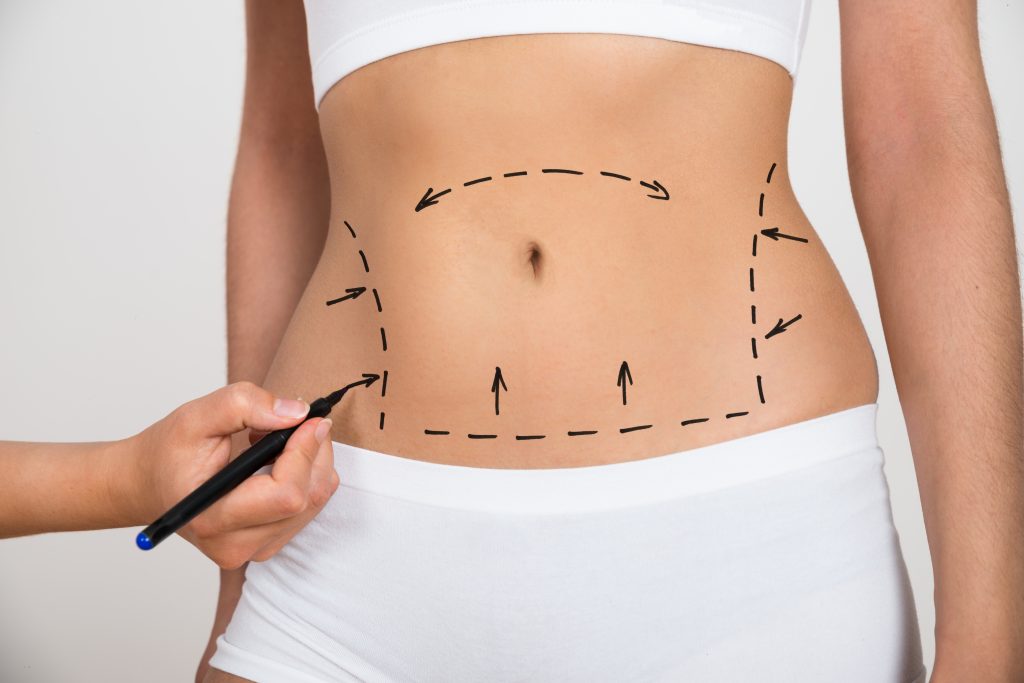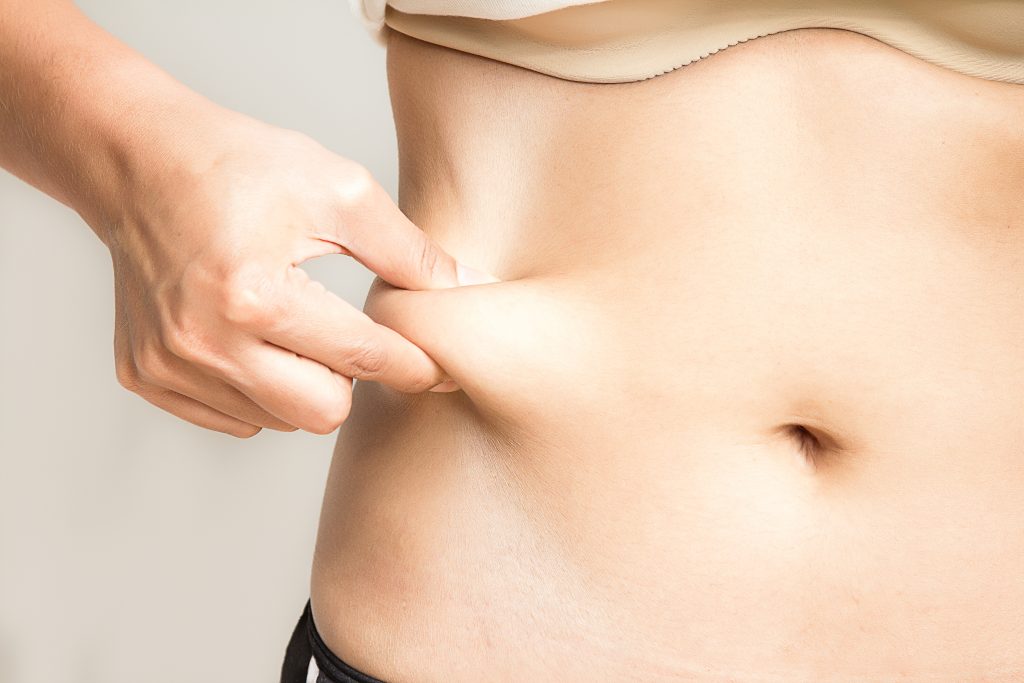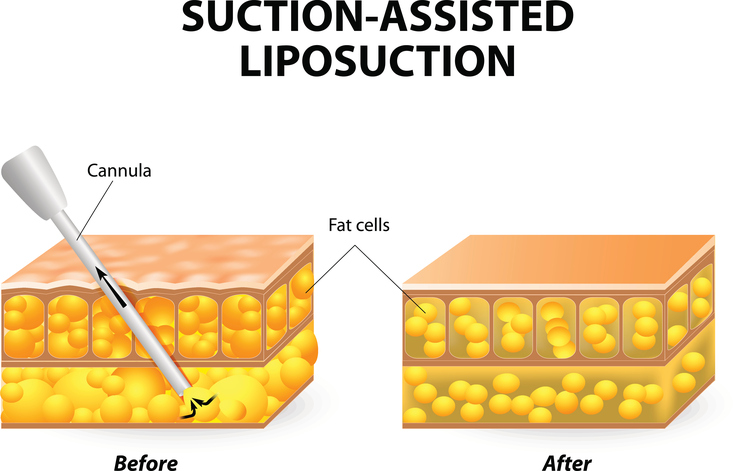Liposuction from U.S. Dermatology Partners
What Is Liposuction?
Liposuction is a type of cosmetic surgery used to break up and “suck” fat from various parts of the body, such as the abdomen, thighs, buttocks, neck, chin, upper arms, calves and back.
Even though liposuction removes fat, it is not designed as a weight loss treatment. Rather, liposuction is for people who are within 10% of their ideal body weight, but cannot shake stubborn fat deposits in specific areas of the body.

Doctors prepare for liposuction by planning where to ‘suck up’ fat.
Find This Service Near You
Who Is a Good Candidate for Liposuction?

Additionally, the best candidates are individuals with good skin tone and elasticity, as people whose skin lacks elasticity may end up with loose-looking skin after the procedure. It’s also important for the patient to be in good health and have good circulation. Individuals with problems such as diabetes, a weakened immune system or coronary artery disease should avoid having liposuction, as it will be more difficult for them to heal and recover from the procedure.
Your doctor at U.S. Dermatology Partners can help you assess whether you are a good candidate for this procedure.
How Is Liposuction Performed?
Liposuction sculpts the body by removing parts of the subcutaneous tissue. To remove excess fat, your doctor will use a hollow instrument called a cannula.

Liposuction sculpts the body by removing parts of the subcutaneous tissue.
The cannula is inserted under the skin, and then a high-powered, high-pressure vacuum is applied to suck out the fat. The procedure is done in relatively small areas of the body. An experienced provider will understand the best ways to address your problem areas, and will have the experience to remove excess fat in a controlled way.
Are There Side Effects to Liposuction?
Liposuction comes with several potential risks, which include infection, numbness and/or scarring. Also, if too much fat is removed, or the fat is removed improperly, you may be left with lumpiness or dents in the skin. The more fat removed, the greater the potential risks are.
That being said, liposuction is the most commonly performed plastic surgery procedure in the United States, and there have been major advances in technology since the procedure was first pioneered in the 1920s.
How Long Will Liposuction Last?
Changes from liposuction can be long-lasting and even permanent, as the fat cells have been completely removed. However, if you gain weight after the procedure, that will cause the remaining fat cells to grow in size and volume.
*Results may vary by individual
